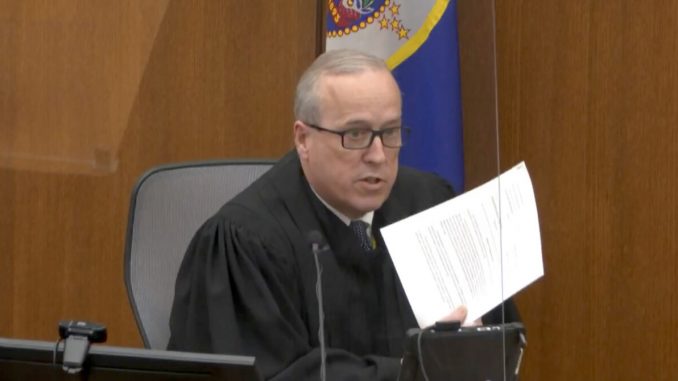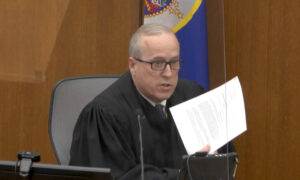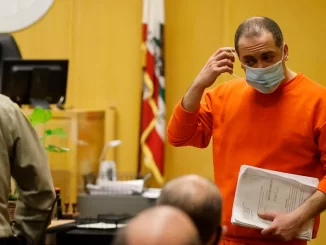

Commentary
So much has been said about the murder trial of former Minneapolis police officer Derek Chauvin—and so little has been mentioned about the jurors who decided the case.
Let’s take a walk in their shoes.
At first, you are allowed to go home every night, and while you really want to talk to your loved ones about this most important time in your life, the judge has ordered you not to discuss the case with anyone. Further, Judge Peter Cahill has instructed you not to “watch the news” about the case.
But information about the death of George Floyd isn’t just on the news. It penetrates your favorite evening TV shows when teases for upcoming newscasts interrupt programming. Information about the high-profile murder trial pop up on your phone and car radio. Commentary on the case floods every cafe and social media platform.
It is hard to follow the judge’s orders and to sit through so much horrific testimony shoulder-to-shoulder with fellow jurors who are total strangers, but you do your best to pay attention.
And every day you come to court, you can’t help but notice the warlike transformation of the area: the new chain-link fence around the courthouse, the boarded-up store and office windows, the concrete barriers and barbed wire on rooftops, and the sudden presence of the National Guard. You know in your bones that something awful could happen after you and the other jurors render a verdict.
Then, Rep. Maxine Waters (D-Calif.) swoops into Minneapolis (after making a request that a U.S. Capitol police detail escort her) to persuade protestors to continue to “fight” police brutality and to protest if the verdict isn’t “guilty, guilty, guilty.”
“We’ve got to stay on the street, and we’ve got to get more active. We’ve got to get more confrontational,” she said among the already agitated crowd. “We’ve got to make sure that they know that we mean business!”
As a juror on the city’s most headline-grabbing murder case, you can’t help but have heard about Waters’ comments, and it adds to the enormous stress you already feel.
When it comes time to deliberate, the judge decides the jury should be sequestered in a hotel, held under tight security, and with no communication to the outside world. So, presumably, you don’t hear President Joe Biden say he’s “praying the verdict is the right verdict, which is—I think it’s overwhelming, in my view.”
At least, I hope you didn’t hear that and feel more pressure.
Then, after 10 hours of secret discussions, your jury foreman sends word that you’ve reached a decision. That must have been the most anxious time of all. That walk back into the courtroom knowing that people around the globe were glued to the outcome. Did you look over at the defendant? Were your hands shaking? Did you feel like crying? I can’t imagine what it was like for you at that point, realizing the ordeal of judging another human being was almost over.
I’m sure Cahill met with the jury afterward to thank you for your service. I wonder if he told you that the local newspaper, the Star Tribune, had already published a detailed but unnamed bio of each juror that was sure to identify you. Henceforth, there is no way for you to escape this episode of your life. You will always be known as “that George Floyd juror,” and whether you like it or not, that exposure could put you in danger.
Concerned readers such as @Junebotprolly took to Twitter to lambast the newspaper. “Holy crap. ARE YOU INSANE? When one of these juror dies at the hands of an angry mob, I hope you’re willing to take responsibility for your part in doxxing them. This is despicable,” she wrote.
Newsmax anchor Heather Childers tweeted: “How is this allowed? Clearly enough information to identify the jurors in the Chauvin trial. Could this not be used as juror intimidation? Does this add to grounds for appeal?”
The saga of former officer Derek Chauvin is not over, as there will most certainly be an appeal. But for the jurors who just performed this vital civic duty, we should offer great thanks and hopes that they all stay safe.
Diane Dimond is an author and investigative journalist. Her latest book is “Thinking Outside the Crime and Justice Box.”
Views expressed in this article are the opinions of the author and do not necessarily reflect the views of The Epoch Times.






Be the first to comment